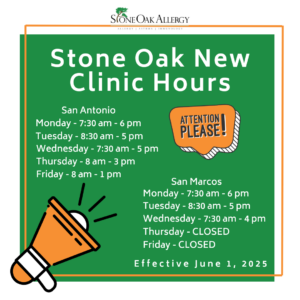July 17, 2019
Talking to Kids About Food Allergies

Food takes center stage in most of life’s everyday gatherings and special occasions. But for food allergy families, a table piled high with delicious food can feel like a minefield.
It’s hard enough for adults to wrap their heads around what can happen if their child accidentally eats an allergenic food. It can feel downright overwhelming to explain it to a little one in a way that conveys the seriousness of their allergies without frightening them.
As you embark on the food allergy journey, take a deep breath and try to remain calm (fake it if you must!). They will feed off of your energy, and if they sense panic in you, they may become fearful of food. The goal is to set clear boundaries and instill confidence that this can be safely managed while still allowing them to enjoy plenty of foods.
Many people find it helpful to describe foods as “safe” or “unsafe.” Kids should know that unsafe foods will make them sick and must be avoided no matter what. Help them understand what some of those foods look like. If they can read, explain food labeling and show them how to tell if a food is safe for them. Of course at the outset, the adults in their life will be responsible for monitoring foods. However, eventually they must learn how to advocate for themselves, and teaching them to identify safe foods under your watchful eye is a great place to start.
Once you get the hang of it, managing food allergies at home becomes second nature. Dealing with school, parties, restaurants, and friends’ houses can be a different story. Some people may not understand the seriousness of your child’s allergy, or they may have no idea what is actually in the food they are serving.
A clear and concise rule of thumb in these situations is for your child to never accept food from anyone except the select few adults who are equipped to keep them safe. This rule includes friends – no food-sharing! Tell your child to politely decline when food is offered. Some well-meaning adults may still be pushy (people love to feed kids!). If the polite tactic doesn’t work, they can suggest the adult ask mom or dad. It is never rude to keep yourself safe, regardless of how insistent someone is.
In terms they’ll understand, teach your child how an allergic reaction could feel.
They might get a tummy ache or itchy bumps on their body, their mouth might burn, they may cough or sneeze, breathing may be hard, etc. Or it could be they just feel a little funny but can’t put their finger on the reason why. Constantly emphasize that they must tell an adult the minute they start to feel strange. They have to know without a doubt that they will never be a bother or get in trouble for interrupting if they don’t feel right.
Explain that you have a plan in place for if they accidentally eat an unsafe food.
They will take medicine and likely visit the doctor. You can show them the antihistamines and epinephrine auto-injectors you’ll keep around them at all times. This is another piece of the puzzle for when they get older and have to manage their food allergies alone. Toting their emergency kit will come naturally.
If you and your family keep food allergies as part of your daily conversations, they will not be a mystery. Your child will soon grasp the seriousness of their allergies while embracing all the other joys of being a kid! Dodgeball, anyone?
